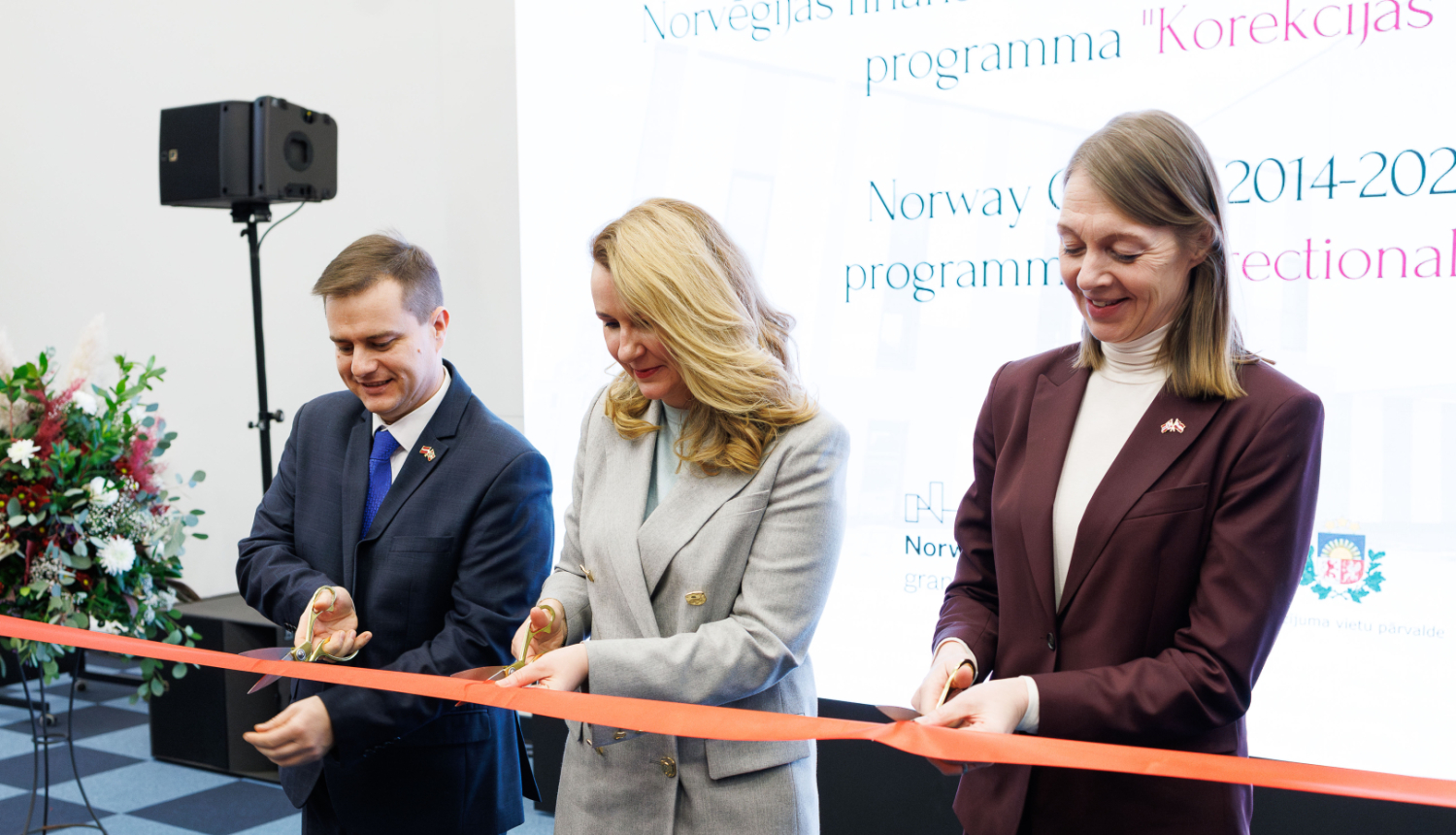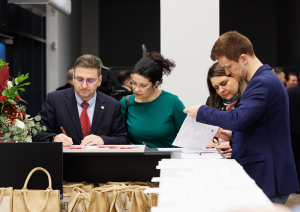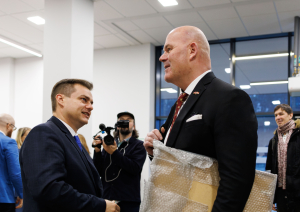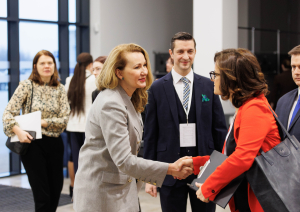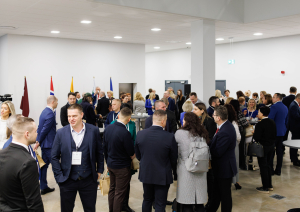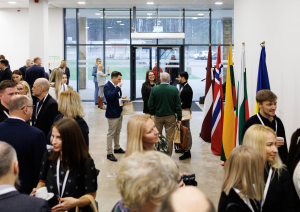On 22 January 2025, the Training Centre of the Prison Administration was opened in Olaine in the presence of the Minister of Justice Inese Lībiņa-Egner, the Ambassador of the Kingdom of Norway to Latvia Ine Måreng and the Head of the Prison Administration Dmitrijs Kaļins. The opening of the Training Centre marks a new stage in the penal enforcement system, with a greater emphasis on the implementation of resocialisation measures in the future, working on changing the behaviour of convicts. The aim is to reduce re-offending in Latvia in the long term and to contribute to overall public safety.
Opening the Training Centre, Minister of Justice Inese Lībiņa-Egnere said: "A lot of work has been invested to start a gradual transition to a modern penalty enforcement system in Latvia. With the admission of prisoners to the new Liepaja Prison in 2026, we want to introduce a completely new way of thinking and system. The Training Centre will play a key role in achieving this by training prison staff in an approach based on professionalism, new values, a deeper understanding and a more targeted approach to the resocialisation of convicts. Moreover, one of the tasks of the Training Centre and the new prison will be to prevent a hierarchy of the informal system among detainees, excluding the formation of "upper and lower castes". The Centre will provide the necessary knowledge to enable the staff to perform their duties successfully."
The construction of the training centre and the development of the training curricula have been carried out within the Norwegian grant programme project "Establishment of a Model Prison Campus and Infrastructure for the Training Centre in the Olaine Prison". With the experience, knowledge and cooperation of Norwegian experts, many reforms and reconstructions of correctional institutions have been implemented and developed in Latvia over a period of more than twenty years.
At the opening ceremony, the Ambassador of the Kingdom of Norway to Latvia, Ine Moreng, said: "The Learning Centre is the most visible and tangible result of the Correctional Services programme. However, the Learning Centre is much more than what we can see and touch today. The training activities will help to improve the work of correctional services in Latvia and contribute to public safety. I would also like to underline the excellent cooperation between Norway and Latvia in achieving the results - the personal contribution and commitment of the partners involved has been unique."
The training centre is about 2,500 square metres and includes classrooms, a conference room, a library, a reading room, a dormitory (40 double rooms with capacity for 80 trainees at a time), as well as sports and practical training rooms. The training centre has a specific infrastructure for the practical skills training of prison officers. Practical skills will be developed both in a specially equipped close combat room and in a fitness room, which will eventually be equipped. The training centre can train 150 employees at a time.
Colonel Dmitrijs Kaļins, Chief of the Prison Administration, noted, "The new Training Centre of the Prison Administration in Olaine is not only a modern infrastructure - it is also a place for growth, cooperation and a change in thinking. It is a place where our existing and new employees will not only become more professional, but also more confident and motivated. I am delighted that through this project we have worked together to open up new horizons for a future enforcement system that remains focused on people, professionalism and development. I wish that the Training Centre serves as a testament to the fact that with perseverance and common purpose we can turn vision into reality."
Construction of the new Training Centre started on 9 March 2023 and the site was commissioned on 3 December 2024. The construction of the facility was carried out by Pillar Contractor Ltd.
The construction of the facility according to the concluded contract (construction, author supervision, construction supervision) cost EUR 9097052.66 (including VAT), of which 85% is financed by the Norwegian Government or Norwegian grants, and 15% is financed by the Latvian state budget.



